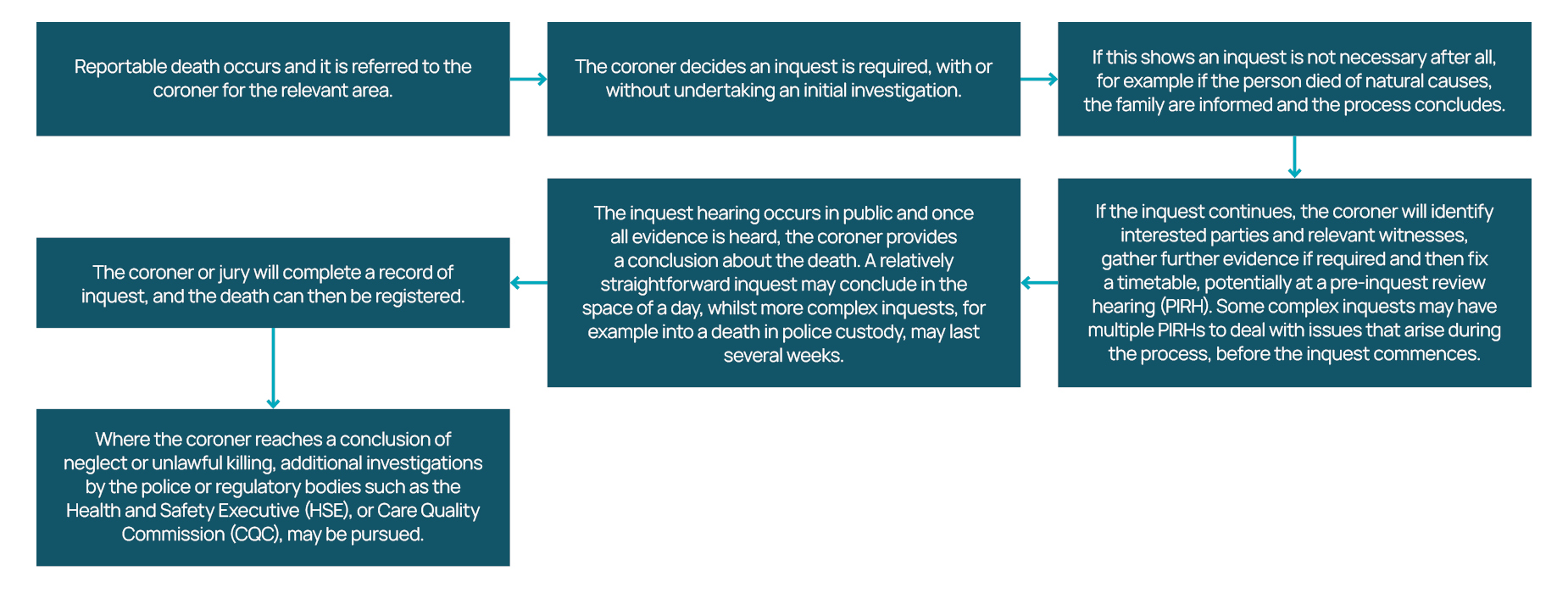Other investigations
It’s important to note that inquests may not always exist in isolation. There are often occasions where the police, the HSE, CQC or other regulators have carried out, or propose to carry out, their own investigation into the death, which may lead to criminal enforcement action, including prosecuting individuals and organisations. These bodies may elect to defer their enforcement decision until after the inquest so that they are in a position to consider the evidence heard at the inquest when deciding on their enforcement response. Therefore, while the inquest can sometime appear narrow in focus and fact finding only, it’s important to have regard to these wider considerations during the inquest process.
Civil proceedings may also be brought by family members following the conclusion of an inquest if, for example, potential breaches of duty of care are discovered during the inquest process.
Prevention of future death reports
In inquests, the coroner has the power to issue a prevention of future deaths (PFD) report, setting out recommendations to organisations to ensure that lessons are learned and that appropriate changes are made to policies and procedures so that future deaths don’t occur. The recipients are required to respond to the report within 56 days to evidence how such recommendations have been implemented.
All PFD reports and responses are publicly available on the UK judiciary website, potentially exposing organisational failings and risking reputational damage. It’s therefore key for organisations to illustrate from the outset of a death that lessons have been learned and that effective changes have been made so that no similar incidents can occur. This can be looked on favourably and may lead to the coroner not issuing a PFD report.
What actions should I take?
Should your organisation find itself involved in a fatality, you will need to consider the potential legal processes which may follow – including the inquest, and the possibility of a police and/or regulatory investigation and civil claims.
From the outset you will need to think about document preparation and preservation, and whether you should be conducting an internal investigation and witness interviews into what has occurred. Inquest proceedings can take many years to conclude and knowledge of what occurred will fade and key people may move on from the organisations involved during this time. You need to take this into account early to avoid a last-minute scramble to locate key witnesses and relevant information.
You should also think about responsibilities – who is going to manage your interactions with regulators, the coroner, or the police? Engaging legal support early can ensure a consistent approach to engagement with these third parties and the legal processes.










